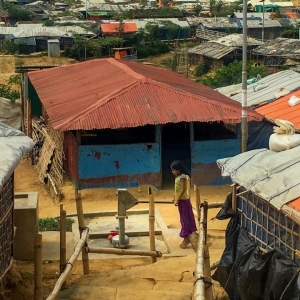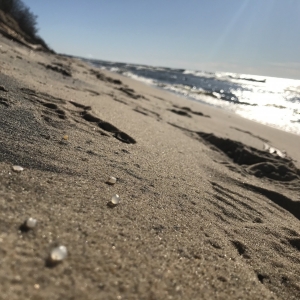The Stream, May 4, 2021: Rio De Janeiro Privatizes Water and Sewer Utility
YOUR GLOBAL RUNDOWN
- Brazil moves to privatize Rio de Janeiro state’s water and sewage utility.
- A Canadian mining company requests a state permit for a uranium mine in South Dakota.
- Over four dozen water advisories are still active in First Nations communities in Canada after a government deadline to bring clean water to all Indigenous communities passed in March.
- More frequent and intense climate disasters affecting farms throughout the United States could impact the global economy.
A fire at a Jackson, Mississippi water treatment plant highlights ongoing water infrastructure deficiencies.
“When we have aged systems, it’s not a matter of if but a matter of when we will experience the events and the breakdown of our system.” – Chokwe Antar Lumumba, the mayor of Jackson, Mississippi. After a fire broke out at a water treatment plant on Friday, water pressure dropped throughout the city. The Associated Press reported on Friday that an investigation into the cause of the fire was ongoing. The fire highlights Jackson’s extensive water infrastructure problems that were also laid bare in February, when winter storms left parts of the city without water for weeks.
IN RECENT WATER NEWS
California Tribes Call Out Degradation of Clear Lake
Clear Lake, about 100 miles north of San Francisco, is relatively shallow, warm and, by its nature, biologically productive. That’s why it’s known as one of the best bass fishing spots in the country. It’s also considered the oldest lake in North America, which means that algae have probably been present for some portion of its 2 million years. Indigenous groups have lived along the lake’s clean waters and fertile shores for some 12,000 years.
But over the last century and a half, Clear Lake’s ecological balance has come undone. White settlers planted orchards, dug mercury mines, and built homes and towns. In the process an estimated 85 percent of the lake’s nutrient-absorbing wetlands were destroyed. Unimpeded flows of nitrogen and phosphorus tipped Clear Lake into hyperproductivity, or eutrophication. Algae and cyanobacteria blooms worsened in the 1970s, starting improving through the 1990s, and now are as extensive as any in generations.
In Case You Missed It:
HotSpots H2O: In Mali, Climate Change disrupts Peace Efforts – Climate change, environmental insecurity, and limited fresh water are escalating conflict throughout Mali, preventing peace-building and disrupting livelihoods, according to a new report.
What’s Up With Water – May 3, 2021 – This week’s episode covers WASH news around the world, a contentious canal in Turkey, how pandemic lockdowns boosted water supplies in South Asia, a glacial lake that could jeopardize a Chinese hydropower dam project in Tibet, and broader water restrictions in California.
Brazil Privatizes Rio de Janeiro’s Sewage Sector
Brazil privatized the water and sewage utility in Rio de Janeiro state last week, the Associated Press reports, the biggest privatization of the country’s sewage sector ever. The majority of the state-owned utility company’s assets were divided into four water distribution and sewer service areas. A 35-year operating concession for each area was offered at an auction, but only three sold. The move comes after years of broken promises to improve sewage treatment and clean up polluted Guanabara Bay.
TODAY’S TOP WATER STORIES, TOLD IN NUMBERS
52 MILLION GALLONS
A Canadian mining corporation has resumed the permit process to open a uranium mine in South Dakota, the Associated Press reports. If the mine opens as proposed, it would use more than 52 million gallons of water over 16 years. Opponents of the project say it would destroy the water supply for residents in the state’s southwest, where water is already scarce.
52 ADVISORIES
The Guardian reports that as of late April, there were 52 water advisories in at least 33 First Nations communities across Canada. Although that number is down from 105 communities in 2016, the Canadian government has acknowledged it missed its goal of ending all water advisories by March of this year. Setting up water infrastructure in rural First Nations communities – some only accessible by plane—has been one challenge in achieving the goal. But colonial-era laws, which barred Indigenous communities from receiving funding and managing their own water treatment systems, have been a longstanding obstacle.
ON THE RADAR
More frequent and intense climate disasters could disrupt the agricultural industry in the United States, Inside Climate News reports. The economic burden thus far has fallen on farmers and taxpayers. Sooner rather than later, it could start overwhelming banks and lenders that provide critical loans to farmers, disrupting the food supply and the financial systems that stabilize the global economy.
Jane is a Communications Associate for Circle of Blue. She writes The Stream and has covered domestic and international water issues for Circle of Blue. She is a recent graduate of Grand Valley State University, where she studied Multimedia Journalism and Women, Gender and Sexuality Studies. During her time at Grand Valley, she was the host of the Community Service Learning Center podcast Be the Change. Currently based in Grand Rapids, Michigan, Jane enjoys listening to music, reading and spending time outdoors.






Leave a Reply
Want to join the discussion?Feel free to contribute!